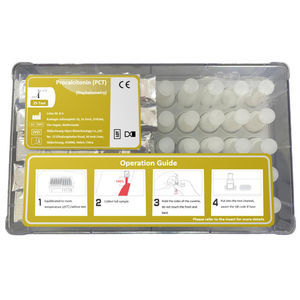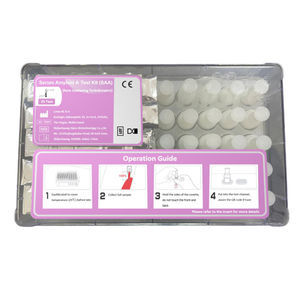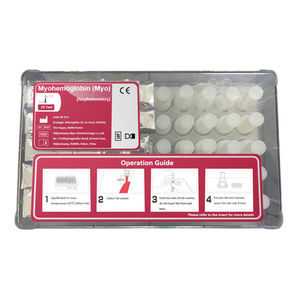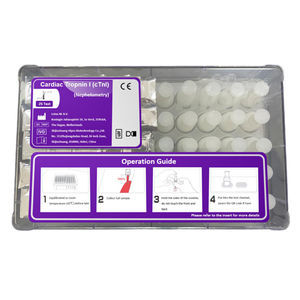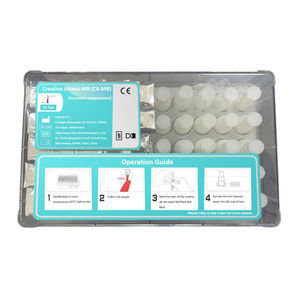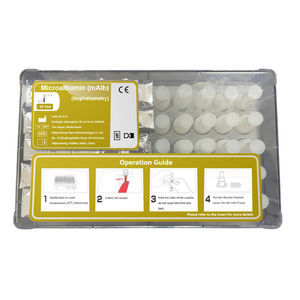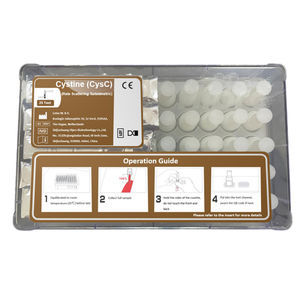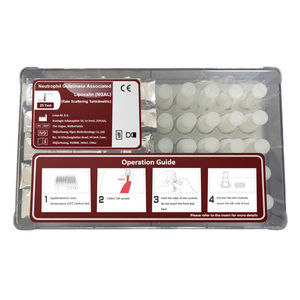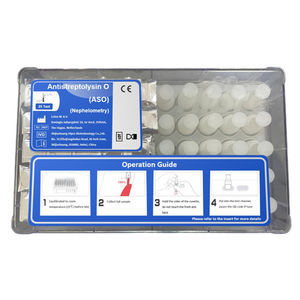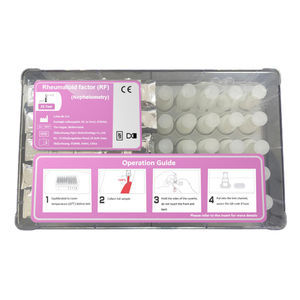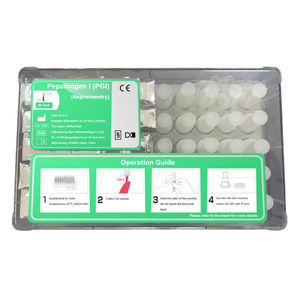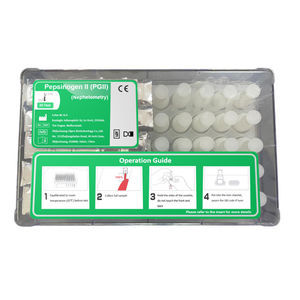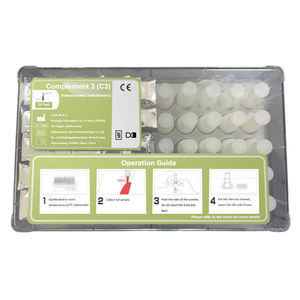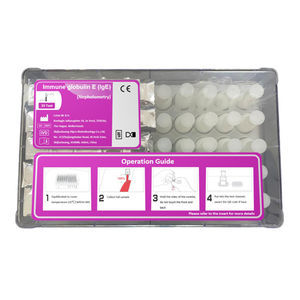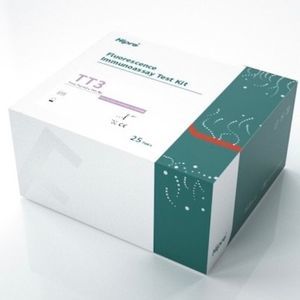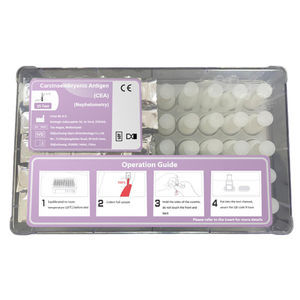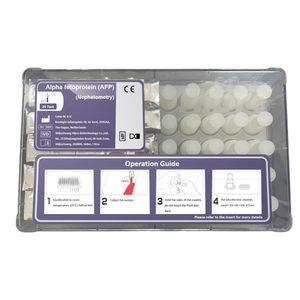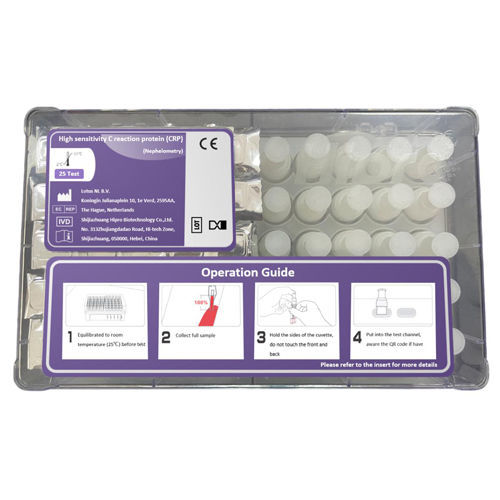
- Laboratory
- Laboratory medicine
- Pneumonia test kit
- Hipro Biotechnology Co., Ltd.
Pneumonia test kit CRPhs-CRPwhole blood
Add to favorites
Compare this product
Characteristics
- Applications
- pneumonia
- Tested parameter
- CRP, hs-CRP
- Sample type
- whole blood, surface
- Result display time
90 s
Description
C-reactive protein (CRP) is an acute-phase protein that can react with Streptococcus pneumonia C polysaccharide to form complex, it can be used for differential diagnosis of bacterial and viral infections, Diagnosis, and monitoring of autoimmune and infectious diseases, as well as antibiotic efficacy observation. Meanwhile, CRP is an effective indicator of the risk of predicting future cardiovascular events (acute coronary syndromes, myocardial infarction, stroke, etc.)
Testing Principle of High Sensitivity C Reaction Protein (CRP) Test
The Hs-CRP units conjugated the specific anti-human CRP antibody in the latex surface.
The CRP in the sample and the antibody become immune complexes by Latex condensation reaction.
The immune complexes will produce the phenomenon of light scattering, which is proportional to the intensity of scattered light and samples of CRP levels.
Using a specific protein analyzer to measure the intensity of scattered light, the concentration of CRP is determined by comparing the turbidity of samples to the standard concentration.
Basic Parameters of High Sensitivity C Reaction Protein (CRP) Test
Packing: 25 Tests/Kit.
Box Size: 17*10*8cm.
Storage: 2-8℃.
Shelf life: 1 year.
Catalogs
No catalogs are available for this product.
See all of Hipro Biotechnology Co., Ltd.‘s catalogsOther Hipro Biotechnology Co., Ltd. products
Diagnostic Reagents
Related Searches
- Assay kit
- Solution reagent kit
- Blood assay kit
- Serum assay kit
- Immunoassay assay kit
- Plasma assay kit
- Infectious disease detection kit
- Blood rapid diagnostic test
- Protein reagent kit
- Diagnostic reagent kit
- Molecular test kit
- Whole blood detection kit
- Respiratory infection test kit
- Rapid virus test
- Serum rapid diagnostic test
- Plasma rapid diagnostic test
- Clinical assay kit
- Infectious disease rapid diagnostic test
- Whole blood rapid diagnostic test
- Cassette assay kit
*Prices are pre-tax. They exclude delivery charges and customs duties and do not include additional charges for installation or activation options. Prices are indicative only and may vary by country, with changes to the cost of raw materials and exchange rates.


